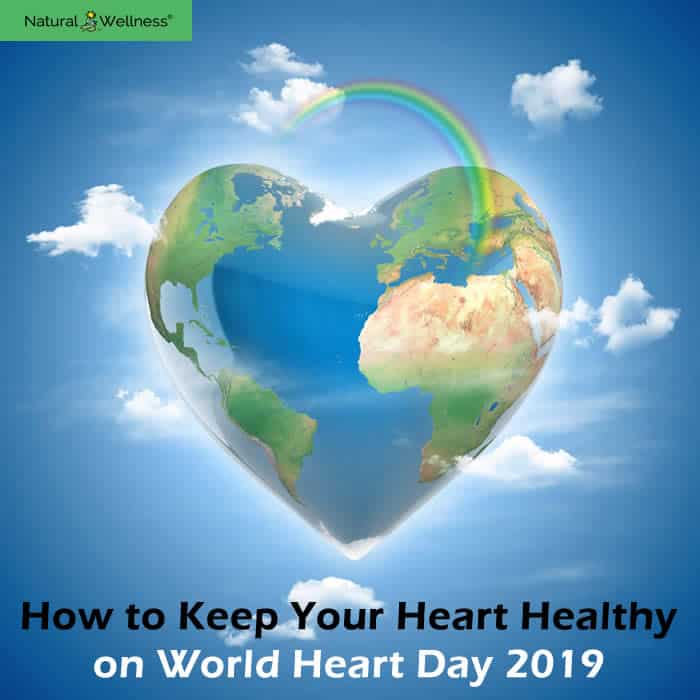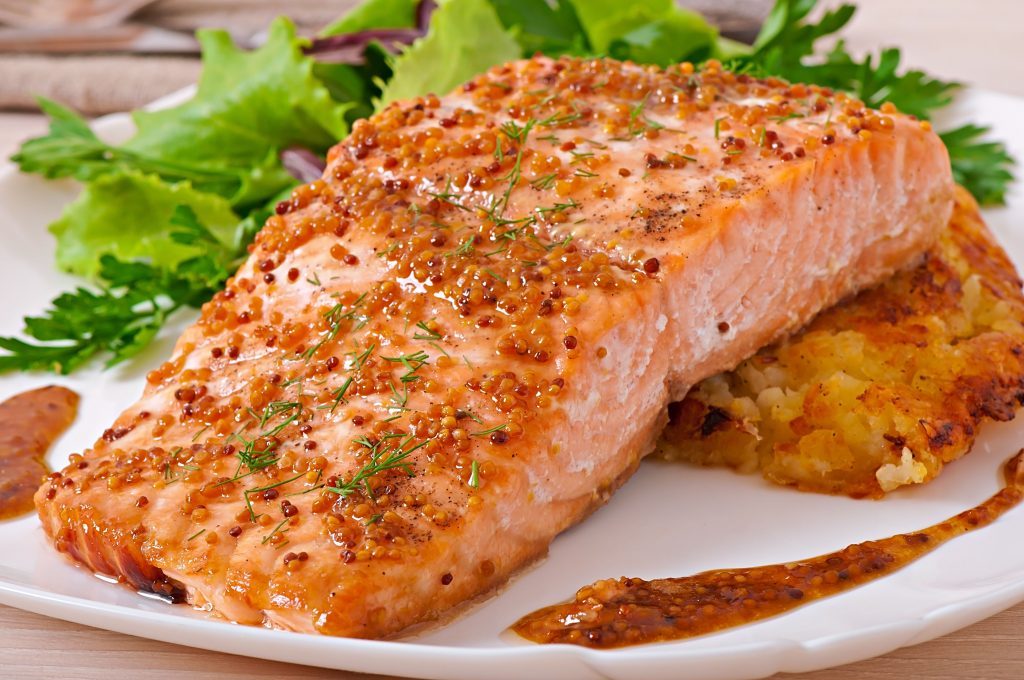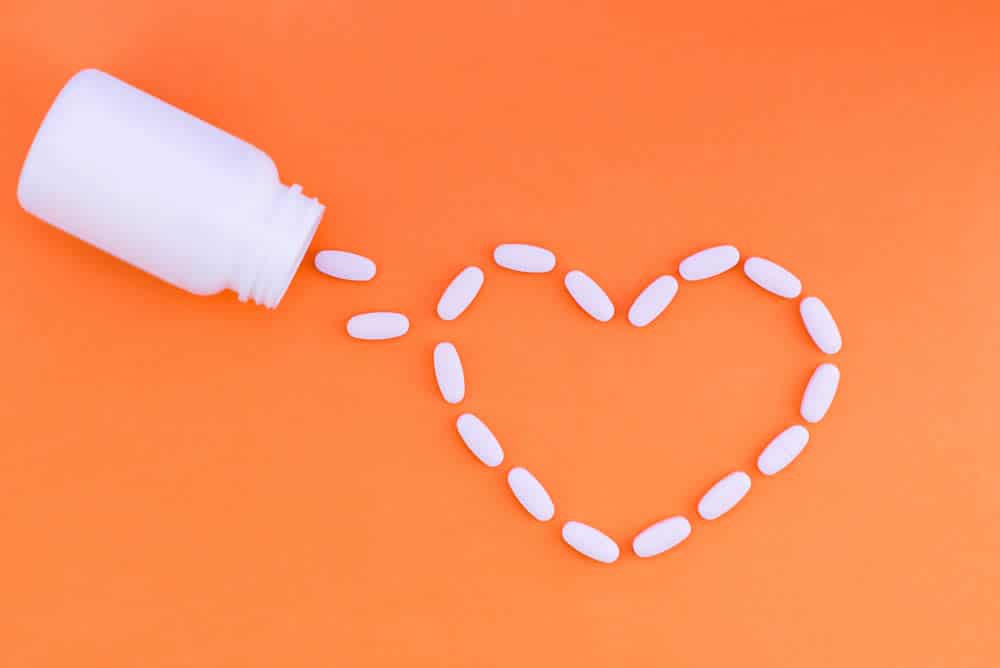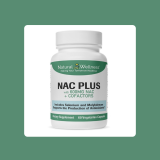

With World Heart Day upon us, September 29th, 2019, let’s take a beat or two to check in with our most interesting and arguably most essential organ muscle. Responsible for pumping blood throughout the body, the heart is a fascinating piece of machinery and, yet with all its prominence, heart disease is still the leading cause of death for males and females in the U.S.
While that is the unfortunate reality, perhaps World Heart Day 2019 can be an opportunity to take the initial steps towards incorporating some new exercises, habits, recipes, or supplements into your routine with a heart-centric focus.
There are many simple ways to acknowledge your heart on World Heart Day this year.
You could:
- skip dessert
- hit the gym
- or start incorporating supplements or vitamins into your diet in order to bolster heart health.
Even a short walk around the block can elevate your heart rate enough to get the blood flowing and reap some immediate health benefits.
Light to Moderate Exercise Helps Your Heart

Light to moderate exercise is scientifically proven to benefit the heart. The most recent and rather robust study on the matter concluded that “light physical activity was associated with a 42% reduced risk of myocardial infarction or coronary death and a 22% reduced risk of incident cardiovascular disease events (1).” That’s huge risk reduction.
Some of the other best ways to stay active and keep the heart healthy are:
- light walking or jogging
- swimming
- yoga
- weight training
- interval training
- and cycling.
A little bit goes a long way.
Diet Is Critical in Supporting Heart Health
Beyond physical activities for heart health, diet is the second battlefront for the war on cardiovascular disease. Drinking alcohol, smoking, and eating foods high in sugar and saturated fats are some of the worst ways to compromise your heart (3).
Heart-Healthy Foods

It’s not just the quality of the foods we eat, it’s also how much. Overeating is just as strenuous on the body as keeping a diet high in fats and sugars (7). The ideal diet is rich in fruits and vegetables, which not only provide a host of vitamins, minerals, and cardiovascular health benefits, but can also help you cut back on higher-calorie foods such as meats, cheeses, and junk foods.
- Whole grains are always a good step towards regulating blood pressure, and cutting back on any foods in your diet high in cholesterol and fat will also take some strain off of the heart (7).
- Easy fat substitutions can be olive oil or coconut oil for butter.
- Fish for red meat.
- Seltzer can be swapped for alcohol or cola.
- Low-fat protein sources are also welcomed replacements for the fatty, salted proteins of yesteryear.
According to The Mayo Clinic, “omega-3 fatty acids may decrease triglycerides, lower blood pressure slightly, reduce blood clotting, decrease stroke and heart failure risk and reduce irregular heartbeats.” Foods rich in healthy omega-3 fats are avocados, fish, nuts and seeds, as well as legumes. Natural Wellness’s Super Omega-3 Fish Oil contains 1000 mgs of active omega-3 fatty acids EPA and DHA. The capsules are also enteric coated to provide improved absorption and prevent “fishy burps.”
Cutting back on sodium intake and foods high in salt is also a great way to help manage high blood pressure.
From seasoning to the oil you cook with, there’s always room for improvement in the kitchen, and big changes often start small.
7 Signs of Heart Trouble
It’s never a bad idea to focus our intentions on the heart in order to check in with how it’s feeling. Our lives are often so busy that sometimes just checking in with how we feel can be an afterthought. But doing so can be as simple as taking a full, deep breath, paying close intention to how your torso, lungs, chest, and neck feel as you do so.
If you notice any of the following symptoms it may be time to consult your physician regarding your heart:
- Chest fluttering
- Racing or elevated heartbeat
- Slow heartbeat
- Chest discomfort or pain
- Shortness of breath
- Fainting and lightheadedness
- Dizziness
Signs of a Silent Attack
Sometimes the warning signs of an oncoming heart attack aren’t intense or obvious. A silent myocardial infarction (SMI) is just that, silent, due to its difficulty to detect.
Whereas regular heart attacks will manifest through shooting pains, numbness in the arms, neck, or jaw, sweating, or dizziness, the signs of an SMI can be much more subtle. Mild fatigue, mild physical discomfort, slight pain in the neck or chest, lightheadedness, mild nausea or abdominal discomfort are all signs of an SMI, but they’re also easily misdiagnosed, masked, or dismissed.
It’s never too late to start being mindful of what our hearts are telling us throughout the day. Catching cardiovascular disease early can be the difference between life and death.
How to Handle a Heart Attack
A heart attack is a dynamic event whereby symptoms can fluctuate and compound, which is why recognition and early intervention is critical in diminishing damage. Calling 911, your doctor and chewing a normal full-sized 325mg dose of aspirin are the next best steps.

Aspirin can keep our blood platelets from clotting in the event of a burst artery and sustain the flow of blood to the heart (6). If the blood around a burst artery clots too quickly it can block the artery, cutting off blood flow to the heart and causing a heart attack (6). Chewing aspirin for 30 seconds is the fastest way to metabolize the active ingredient, acetylsalicylic acid, into your system in the event of an oncoming cardiac event in order to help prevent the attack from escalating.
Consistent, Daily Heart Health
Sometimes asking to change a routine or diet can seem like a daunting task. Foods and behavior are often deep-rooted or even generational, and altering them can take a lot of time, money, and energy. But heart health shouldn’t be an issue that gets procrastinated over or dismissed due to financial or time restrictions. That’s why incorporating a heart health supplement regimen is a consistent and cost-effective way to ensure you’re being heart conscious on a daily basis, even when you may not always have the time to eat right and exercise.
A simple blood pressure supplement can help relax blood vessels to aid in blood flow.
Supplementing can be an effective route to ensuring heart health.
Conclusion
Presenting some of the most acute and succinct advise out there, The World Heart Federation advocates healthy eating, exercise, quitting smoking and lowering cholesterol (4). Simple and to the point. If all we take away are just those morsels of advice, then World Heart Day 2019 will have been a huge success.




